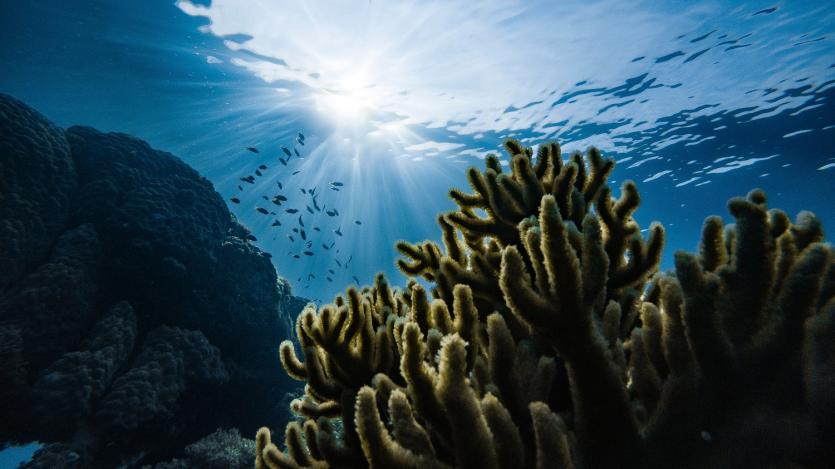Chuuk Lagoon, Weno, Micronesia. Photo by Marek Okon on Unsplash
By Patryk Krych | The World Daily | FEBRUARY 11th 2022
According to the government’s reef management authority, cooler weather may help to lessen the threat imposed onto the corals of the Great Barrier Reef, which has been under significant heat stress recently.
“Substantial cooling” had occurred across the reef following 10 days of rainfall and cloud coverage to the heat-stressed reefs. Over the past few years, mass coral bleaching had been a significant problem in the reef, and many had feared that this Summer would mark the sixth such mass bleaching event. Particularly since the recording of record-high temperatures over the reef across the December period.
“While the forecast for the rest of the month remains for above average temperatures, it is expected this will only be about half a degree warmer,” read a statement from the Great Barrier Reef Marine Park Authority (GBRMPA). “The current thermal anomaly and the forecasts have resulted in a diminished risk of mass bleaching on the reef this summer.”
Coral reefs, and similar organisms, suffer the phenomenon of coral bleaching when environmental conditions like temperature, light and nutrients change. The reefs lose their colour, turning a bony white, and are not longer able to contribute to the process of the delicate marine habitat. This is most often caused, recently, with the extreme warming of waters, caused by a changing climate.
With the bleaching of corals comes a reduced reproduction rate – thus when a coral reef is entirely bleached, it has very little chance of ever coming back again. When such a crisis occurs and a reef is in danger, the entire reef’s ecosystems are also put in peril, as both people and wildlife depend on these ecosystems for either survival or welfare.
“The unfolding crisis in coral reefs will have profound environmental, economic, social, and cultural consequences for reef-dependent societies,” wrote Professor of the Australian Research Council Centre of Excellence for Coral Reef Studies institute at James Cook University, Tiffany H. Morrison, along with her team of researchers in their study published in the journal One Earth.






